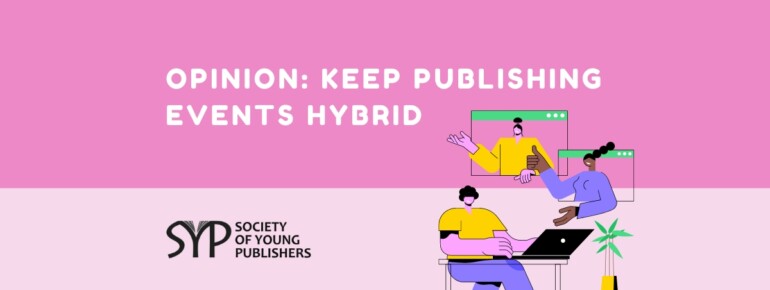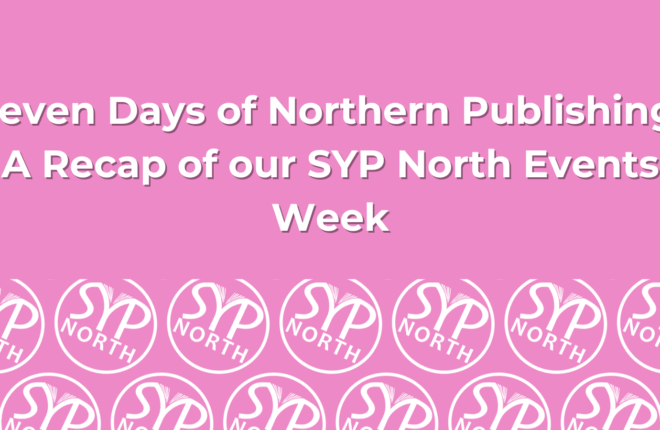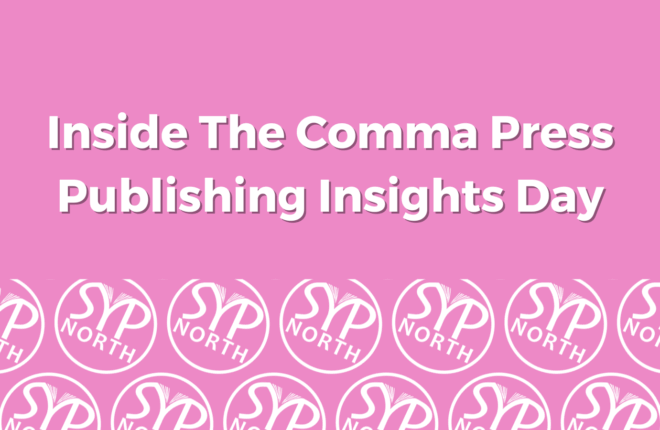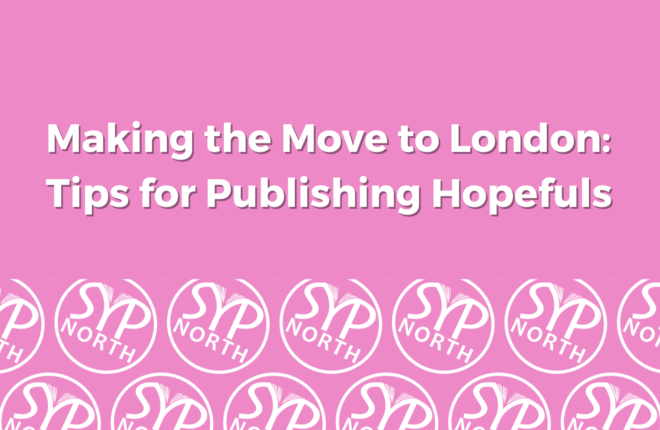
Opinion: Keep Publishing Events Hybrid
Posted on June 25, 2023 in North, UK

Literary festivals and publishing events are an integral and beautiful part of the bookish community, and one of the more pleasant outcomes of the coronavirus pandemic was that these events were made accessible to more people. Since the widespread shift to online programming, it became possible to watch or participate in literary events from home. Attendees that might be disabled, chronically ill, in full-time employment, on a low income, or on the other side of the world, could attend an event from which they may have otherwise been excluded.
Publishing hopefuls and authors alike want the hybrid model to stay. Recent years have seen a clear demand for hybrid events across the publishing profession, as convenient guides to their benefits and the basic requirements for hosting them have been published by various campaign organisations.
Scaling Down
In January last year, the #KeepFestivalsHybrid campaign debuted its own guide to Putting Your Book Festival Online. Just six months later, the much-anticipated Inkulsion Guide launched at the Edinburgh International Book Festival. The guide summarised best practices in relation to accessibility across hybrid, online and in-person events. Speaking at the festival, writer Ever Douglas, who spearheaded the new guide alongside Julie Farrell, claimed there is now “no excuse” for event holders to neglect accommodations for disabled people and the myriad of guests that will also benefit as a result.
However, I was disappointed to discover that the following year the Edinburgh Festival took the decision to scale down, citing rising costs and fewer attendees as justification. Since the start of the pandemic, organisers witnessed “changes in audience booking behaviour” such as “people attending fewer events and spending less money” coupled with rising administrative costs. The ongoing cost of living crisis has no doubt proved an economic challenge for event organisers, who shared plans to reduce expenditure, scale-back operations and revise the delivery of the festival altogether.
A number of “tough” decisions needed to be made, including, but not limited to, the decision to pause all streaming activity, despite its previous success the year prior. Of course, the central role live streams played in widening outreach and participation did not go unrecognised, but not without mention of the heavy costs incurred.
Other event holders soon followed suit, now freed from their obligations to accessibility. A quick glance through the festival calendar soon proves that events with an online component are few and far between. Most take place during the daytime. Most are held in southern cities. Most come with hefty price tags.
Return on Investment
In my own experience, once in-person panels and discussions have taken place, summaries or PowerPoint slides are typically sent out to ticket holders. These come as an added bonus, to sit alongside your notes and pictures from the event. Yet, I am surprised that these digital aids remain so limited in scope. Whilst it is important to distinguish between hybrid and online events, the latter can often serve as a valuable backup option and, from a financial perspective, an additional income source. Lecture recordings, informational packs and other downloadable resources could all be sold to non-attendees at discounted prices, at little extra cost for the organiser.
Hybrid events are also much more likely to generate profit if properly advertised to potential event-goers. When scouring the internet for bookish talks and workshops, it can be tricky to decipher whether or not your local library or festival has an online aspect or to find others that do. The hybrid badge is one to wear with honour. If organisations chose to demonstrate adherence to best practices on their websites, publishing hopefuls would be enabled to find remote events to attend with ease.
I hope that as accessibility becomes a central concern within the publishing industry, and awareness is spread among readers and authors alike, discussions around the endurance of hybrid events become a thing of the past. Better still, it would be nice to look into the future and see the hybrid model become the industry standard, rather than an occasional treat.




 Listen to the podcast
Listen to the podcast  Explore the Youtube channel
Explore the Youtube channel